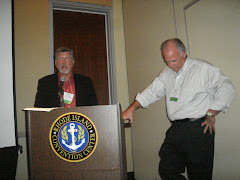Hub diocese releases reports criticizing its parish closings
Cardinal's lay panel reviewed use of funds; Sale of 1 church is also examined
By Michael Paulson, Globe Staff | November 16, 2007
The Archdiocese of Boston, in an unusual act of public self-scrutiny, is releasing two reports highly critical of how the church handled several aspects of the parish closings process over the last several years.
The archdiocese is publishing in its weekly newspaper, the Pilot, a report by a lay panel, the Parish Reconfiguration Fund Oversight Committee, which was handpicked by Cardinal Sean P. O'Malley to review the use of funds generated through the closing of parishes. Even though O'Malley chose to establish the committee, its members said that O'Malley's former aides were not forthcoming with financial information and not responsive to advice from the panel.
The second report, by a retired judge picked by the lay committee to review the sale of one closed church in East Boston, sharply criticizes the archdiocese for its handling of that transaction. That report, being posted on the Pilot's website, describes how the photographer who purchased St. Mary Star of the Sea Church bought the building last November for $850,000 and then sold it three weeks later to an evangelical congregation for $2.65 million.
The archdiocese says it decided to publish the documents in the interest of transparency and because of commitments to the committee, which was headed by David Castaldi, who was a leader of the lay reform group Voice of the Faithful. Archdiocesan officials said they would not dispute the criticism, but instead pointed out that they have replaced the allegedly uncooperative officials and have changed their real estate procedures so that the problems would be less likely to recur.
The report acknowledges the improvements and praises the archdiocese for its recent steps toward financial transparency, which have included what the committee described as "outstanding" and as "the most complete financial disclosure of any diocese in the United States." The committee also said it perceived a "new policy of openness" at the archdiocese after O'Malley last year brought in the Rev. Richard P. Erikson to replace Bishop Richard Lennon as the archdiocese's vicar general and banking executive James P. McDonough to replace David Smith as chancellor.
In an interview yesterday, McDonough said the committee members "have done fine service" for the church and acknowledged that "there were mistakes" in the handling of the East Boston sale but said "no one here benefited from those mistakes." He also said the current administration is committed to listening to laypeople.
The reconfiguration committee reviewed the handling of $66 million garnered by the archdiocese since 2004 through the sale of closed church buildings and the seizure of the treasuries of some closed parishes. It alleged that until a year ago, the archdiocese was characterized by "a culture with excessive concern that outsiders not be permitted knowledge of church policies and business affairs" and said the committee often received information too late to offer any advice and that when it did offer recommendations, they were often not heeded.
The committee also criticized the archdiocese for financial policies that it said rewarded parishioners who challenged their closings and punished those who did not, by allowing funds from contested closings to go to nearby parishes, but taking the funds from uncontested closings for use by the central administration.
But, the committee said, "the transparency in church business affairs introduced by Cardinal O'Malley and his selection of a new archdiocesan leadership team offer hope."
The retired judge who scrutinized the East Boston transaction criticized the archdiocese for failing to protect against flipping, as the quick turnaround sale is called, and for failing to inform its own finance council that the evangelical church had at one point offered the archdiocese a higher price than the photographer.
The judge, Kevin M. Herlihy, said the archdiocese was willing to lose money in order to prevent the building from falling into the hands of the evangelical church, but said the archdiocese's failure to then write a restrictive deed preventing such usage was "unfathomable" and that the archdiocese's conduct "arguably constituted malfeasance, a dereliction of duty."
McDonough commissioned his own review of the East Boston sale that reached similar conclusions, finding that the archdiocese's real estate policies were "clearly deficient." McDonough said he has since put into place new policies requiring better communication and more attention to restrictive covenants in real estate transactions.
Michael Paulson can be reached at mpaulson@globe.com.
Tuesday, November 27, 2007
Subscribe to:
Post Comments (Atom)

No comments:
Post a Comment